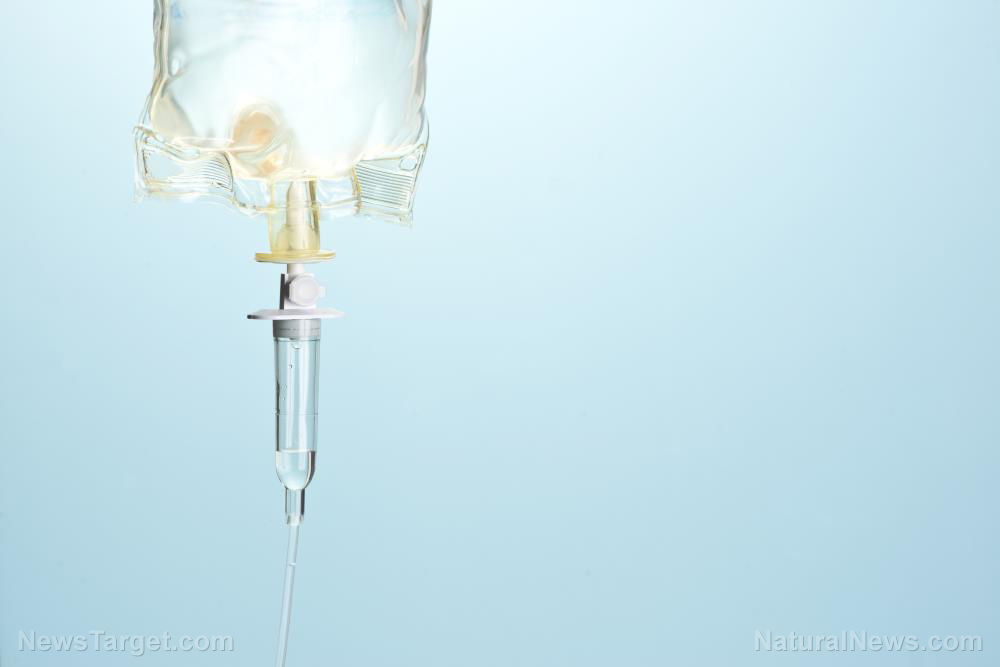Hurricane Helene shuts down top IV fluid producer as it alerts hospitals of possible 40% decrease in supply
A medical technology company responsible for making IV fluids for most U.S. hospitals, last week announced that it would temporarily close production at its North Cove, North Carolina-based facility because of the damages brought by Hurricane Helene – raising major concern about a potential nationwide shortage of IV fluids supply.
Baxter International, the top producer of IV fluid, alerted hospitals to expect its supply to plummet by 40 percent from typical levels, according to Dr. Paul Biddinger, the chief preparedness and continuity officer at Boston’s Mass General Brigham Hospital, which uses more than 100,000 liters of IV fluid from Baxter every month.
“The company is working around the clock in close coordination with local, state and federal officials to assess the extent of the damage and implement a plan to bring the plant back online as quickly as possible to help mitigate supply disruption to patients,” the Deerfield, IL-based Baxter said in a statement.
Critical for surgery when a person is unable to eat or drink, IV fluids deliver drugs or water with electrolytes directly into a patient’s bloodstream to keep them hydrated. The company also makes specialty fluids, such as peritoneal dialysis fluid, which helps patients with kidney failure filter waste from their blood, as well as irrigation fluids, used during procedures to clean or flush wounds.
A spokesperson for the Department of Health and Human Services said that two other large manufacturers of IV fluids in the U.S. are also working to increase supply.
“[U.S. Food and Drug Administration] FDA’s drug shortage office is in touch with Baxter about impacts to products manufactured at the facility and will continue to coordinate with [Federal Emergency Management Agency] FEMA to assist the company with cleanup of the facility,” the spokesperson said.
B. Braun Medical, which accounts for about 23 percent of the IV fluids market, is looking to increase the supply of the “most critical products” or “hospital workhorses,” such as large-volume bags — 500 milliliters to 2,000 milliliters — of sodium chloride, sterile water and lactated ringers. It is also hiring new employees and hopes to be running 24/7 at two of its facilities in the coming weeks.
ICU Medical, another IV fluid supplier, said it’s monitoring for potential increases in demand. It has “already taken necessary steps to increase production to help meet market needs,” spokesperson Harrison Richards said.
Hospitals start conserving supplies, finding other ways to manage patients’ needs
According to reports, a breached levee was a factor in the flooding of Baxter’s plant in Marion, North Carolina, which usually produces 1.5 million bags a day. However, producing as much will be more difficult because of the broken bridges nearby, limiting transport in and out. Baxter said that it would not be able to set a timeline for the resumption of operations at the facility. (Related: Hurricane Helene death toll now over 200 as disaster relief operations continue.)
The company shares dipped 2.47 percent that week, edging up 0.63 percent in after-hours trading.
Meanwhile, Mass General Brigham is among hospitals that are already implementing measures to make the most of their inventory. It is now urging staff to consider using Gatorade or water in situations where that can fulfill patient hydration needs comparably to an IV drip.
“Patients are still getting IV fluids when they need them,” said Biddinger. “We are continuing normal medical services but emphasizing conservation and we are carefully monitoring this incident to determine how long it may last, how long we may need to conserve and making sure we identified all areas of our enterprise where services are affected.”
New Jersey-based WJBarnabas Health also said it is taking “appropriate conservation measures” across its health system as it assesses the supply affected by Baxter. “At this time, there is no impact on patient care,” said Carrie Cristello, a spokesperson for RWJBarnabas. “We will continue to monitor the situation closely.”
In a statement, Oregon Health & Science University Hospital, which was also affected by the Baxter closure, said it is keeping its community informed of any changes that could be needed in patient care, research or education missions. The hospital is also using oral hydration options when possible, as well as evaluating each patient for the discontinuation of continuous IV fluids.
Northwestern Medicine in Illinois said its supply chain team is discussing conservation efforts, as well. “We anticipate this will be a long-term issue,” said Jenny Nowatzke, a spokesperson.
ZeroHedge pointed out how the White House and Democratic presidential candidate Kamala Harris are currently facing a massive backlash of anger and frustration over its response to Hurricane Helene. “A crisis in hospitals will only exacerbate that dynamic,” the news outlet added.
The death toll from Hurricane Helene has risen to over 200 as millions in the Southeastern states are left in the dark. President Joe Biden’s administration continues to assess the damage, especially in the Carolinas, though reports from unnamed sources reveal that “the real death toll is really over 2,000 people.”
Check out Disaster.news to read stories related to this.
Sources for this article include:
ZeroHedge.com
NBCNews.com
Read full article here


